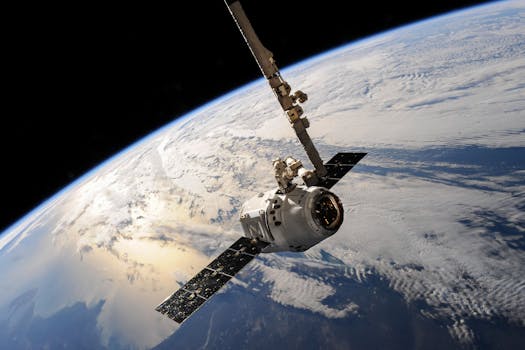Future of Satellites: Revolutionizing Global Connectivity

Future of Satellites: Revolutionizing Global Connectivity
The future of satellites is an exciting and rapidly evolving field, with new technologies and innovations emerging every day. As we look to the future, it’s clear that satellites will play an increasingly important role in shaping our world. From providing global connectivity and enabling remote communication, to monitoring the environment and tracking weather patterns, satellites are revolutionizing the way we live and work.
One of the key areas where satellites are making a significant impact is in the field of global connectivity. With the launch of new satellite constellations, such as OneWeb and Starlink, high-speed internet access is becoming available to remote and underserved communities around the world. This is having a major impact on education, healthcare, and economic development, as people are now able to access vital services and information that were previously out of reach.
Advances in Space Technology
Advances in space technology are also driving the development of new satellite applications, such as Earth observation and navigation. High-resolution imaging satellites, such as those launched by Planet Labs and DigitalGlobe, are providing unprecedented views of our planet, allowing us to monitor environmental changes, track natural disasters, and optimize agricultural production. Meanwhile, navigation satellites, such as the European Space Agency’s Galileo system, are providing accurate and reliable positioning information, enabling applications such as autonomous vehicles and precision agriculture.
In addition to these established applications, new satellite technologies are emerging, such as satellite-based quantum communication and satellite-enabled 5G networks. These innovations have the potential to revolutionize the way we communicate and access information, enabling secure and high-speed data transfer over long distances.
Challenges and Opportunities
Despite the many opportunities presented by the future of satellites, there are also significant challenges to be addressed. One of the major concerns is the growing problem of space debris, which threatens the safety and sustainability of satellite operations. As the number of satellites in orbit increases, so does the risk of collisions and the accumulation of hazardous debris.
To address this challenge, the satellite industry is working to develop new technologies and strategies for sustainable satellite operations, such as debris removal and recycling. Governments and regulatory agencies are also playing a crucial role, establishing guidelines and standards for responsible satellite operations and encouraging international cooperation to address the global issue of space debris.
Conclusion
In conclusion, the future of satellites is a rapidly evolving and exciting field, with new technologies and innovations emerging every day. As we look to the future, it’s clear that satellites will play an increasingly important role in shaping our world, from providing global connectivity and enabling remote communication, to monitoring the environment and tracking weather patterns. While there are challenges to be addressed, the opportunities presented by the future of satellites are vast and promising, and it will be exciting to see how this field continues to develop in the years to come.


